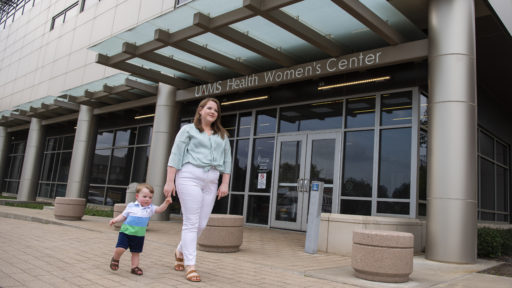Description
One of the most common issues facing mothers who are just starting to breastfeed is mastitis, a condition where one of her milk ducts is clogged, which could lead to an infection. This could lead to a lot of complications and concerns.
Dr. Misty Virmani answers some common worries and offers some guidance for mothers experiencing issues related to mastitis.
Video Player
Transcript
Their highest risk time for developing mastitis is in those first couple of weeks of breastfeeding because your milk is coming in. Most moms have some degree of difficulty with some aspect of breastfeeding, and that puts them at higher risk of having a plugged or blocked duct and then developing an infection in the breast tissue behind that.
It’s also important to say that mastitis, in and of itself, is not a reason to stop breastfeeding. The antibiotics that you would be on — and you do need antibiotics if you have an infection in your breast — are not harmful to your baby. Most of them don’t even get into the breast milk in substantial amounts. And even if they do, they’re not absorbed well by the infant’s intestinal system, so they don’t cause any harm to your baby. So it’s safe to breastfeed if you have mastitis.
Now, sometimes it hurts. Sometimes there’s actual pus coming out of your breast, and that can be really gross and off-putting. But the other breast is completely safe to feed from, so you can feed from one side and not the other and pump and empty the breast.
It’s also really important to say that mastitis is not the time to wean or try to stop because it’s going to get worse if you don’t get the milk out. In general, the answer to all the breastfeeding problems is you’ve got to keep getting the milk out.
If you don’t get the milk out, then you are going to start having problems, either with low supply, with mastitis, with worsening engorgement, with an abscess developing. Particularly in mastitis, we don’t want you to develop an abscess in your breast. That sometimes requires hospitalization and surgery to correct.
And clearly, that would be very painful for you. So we don’t want you to stop breastfeeding or to decrease your breastfeeding. We want to make sure that you still get the milk out. And once some of the things have cleared, like if you’re worried about blood or pus in your milk and you don’t want to feed that to your baby, that’s fine. Make that decision in the short term. But once that’s gone, then you can resume feeding.





